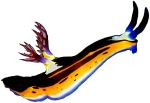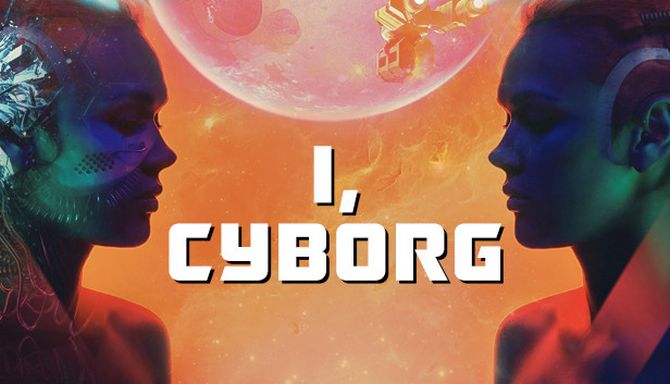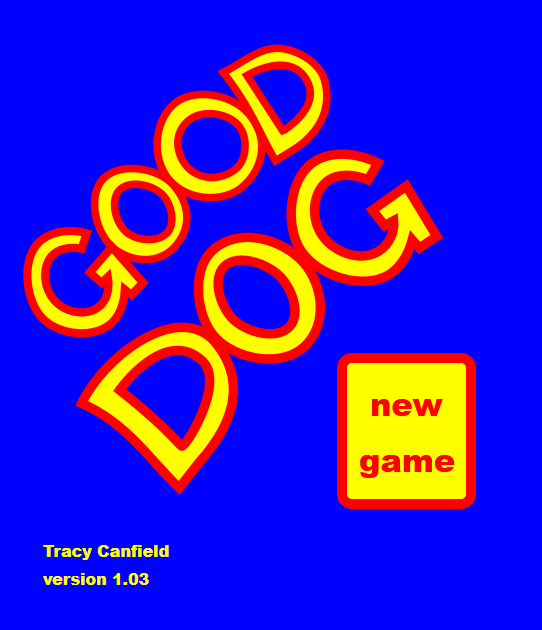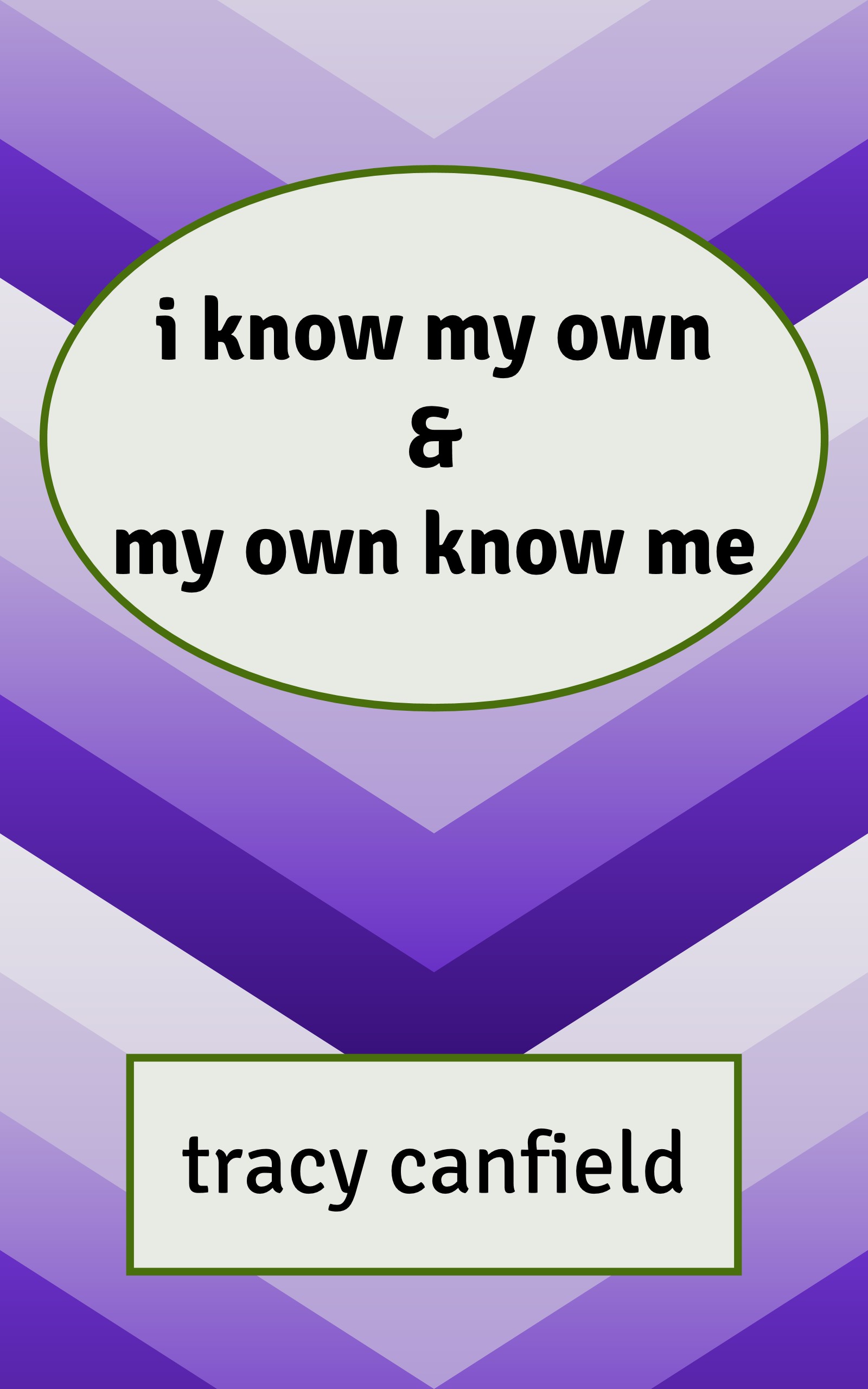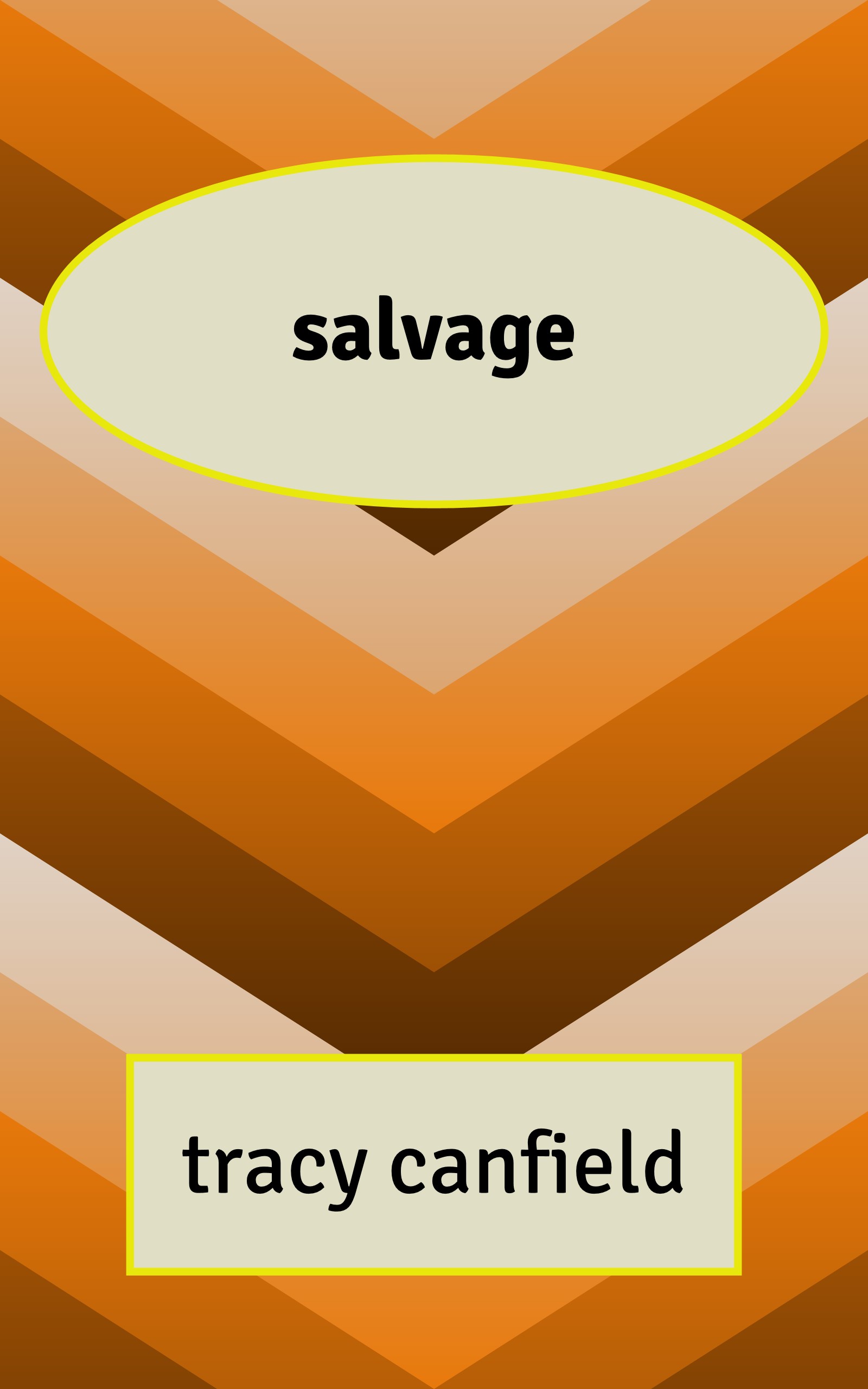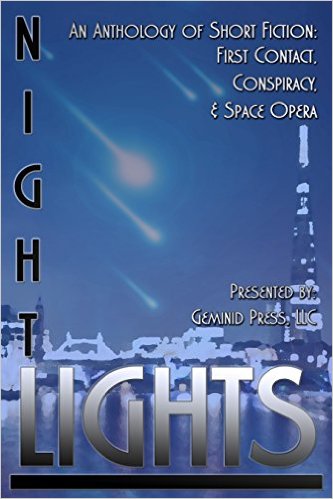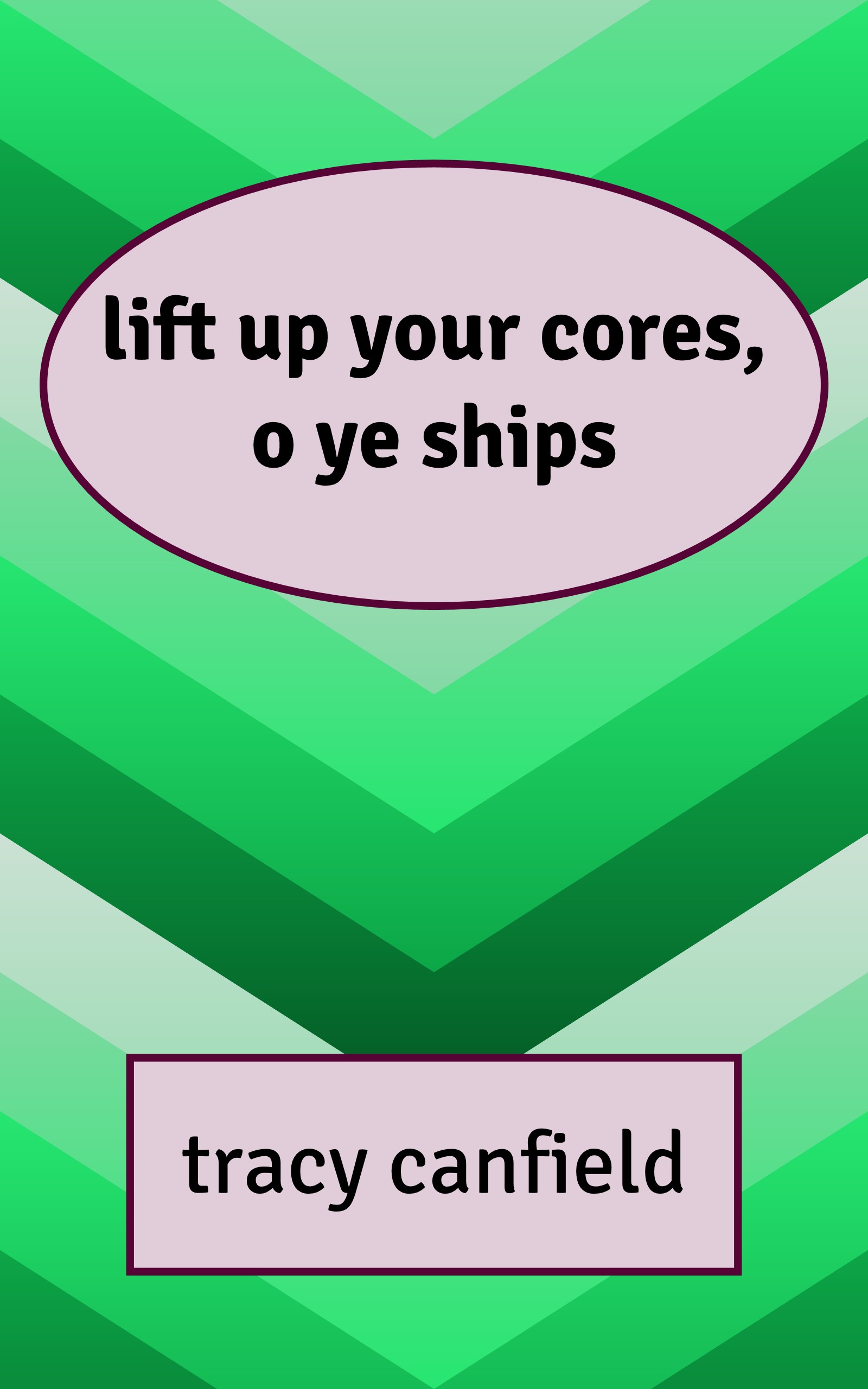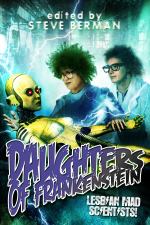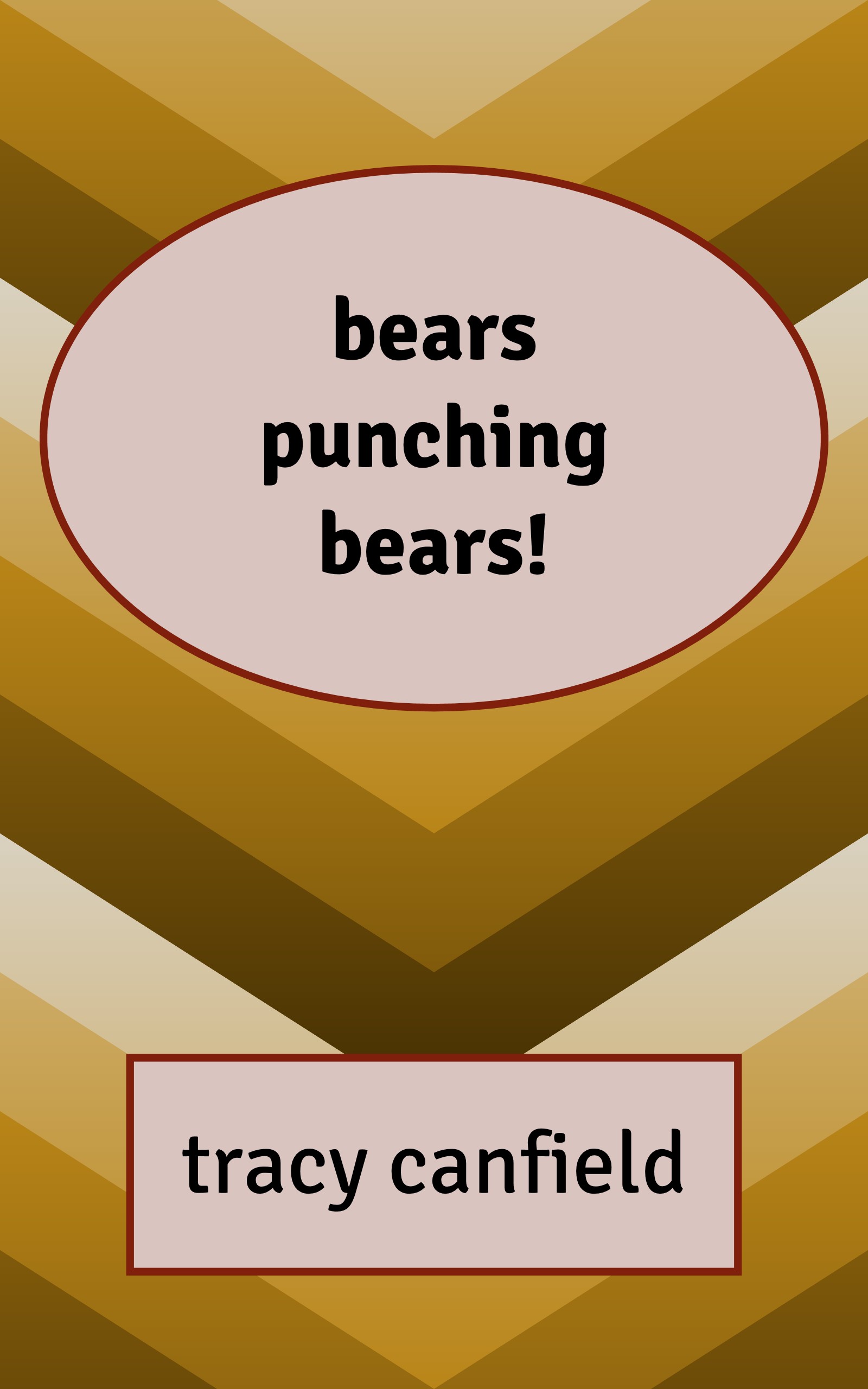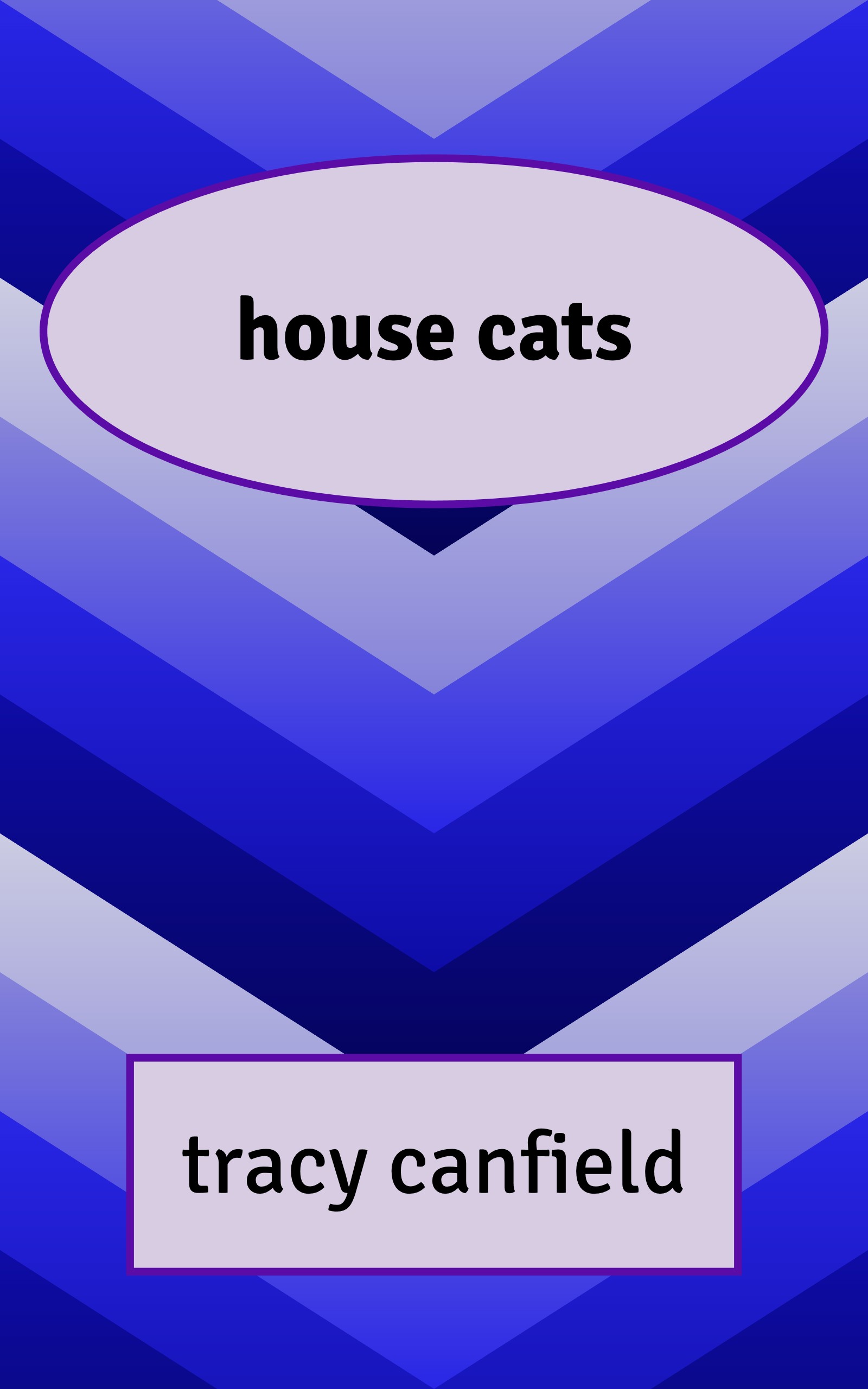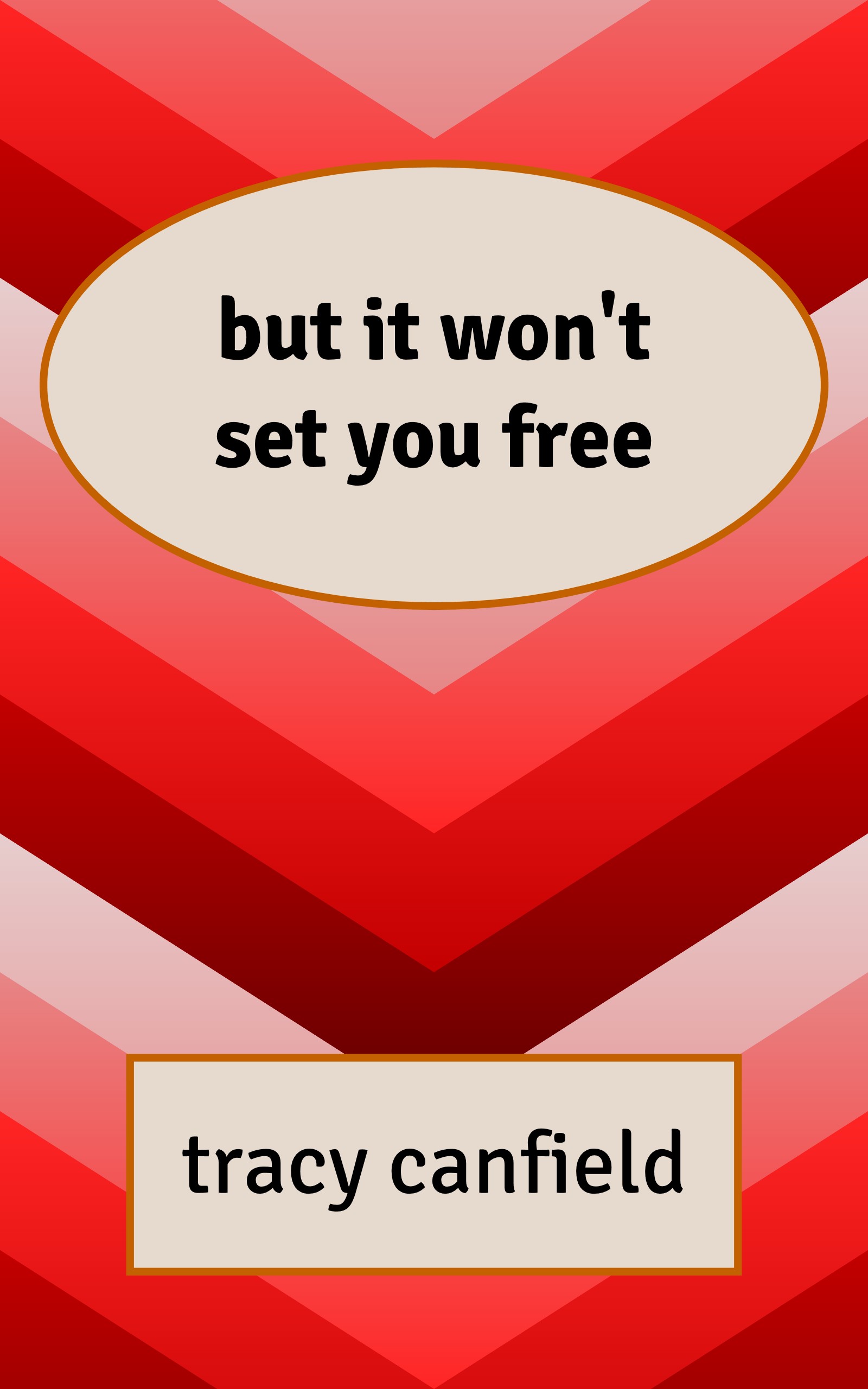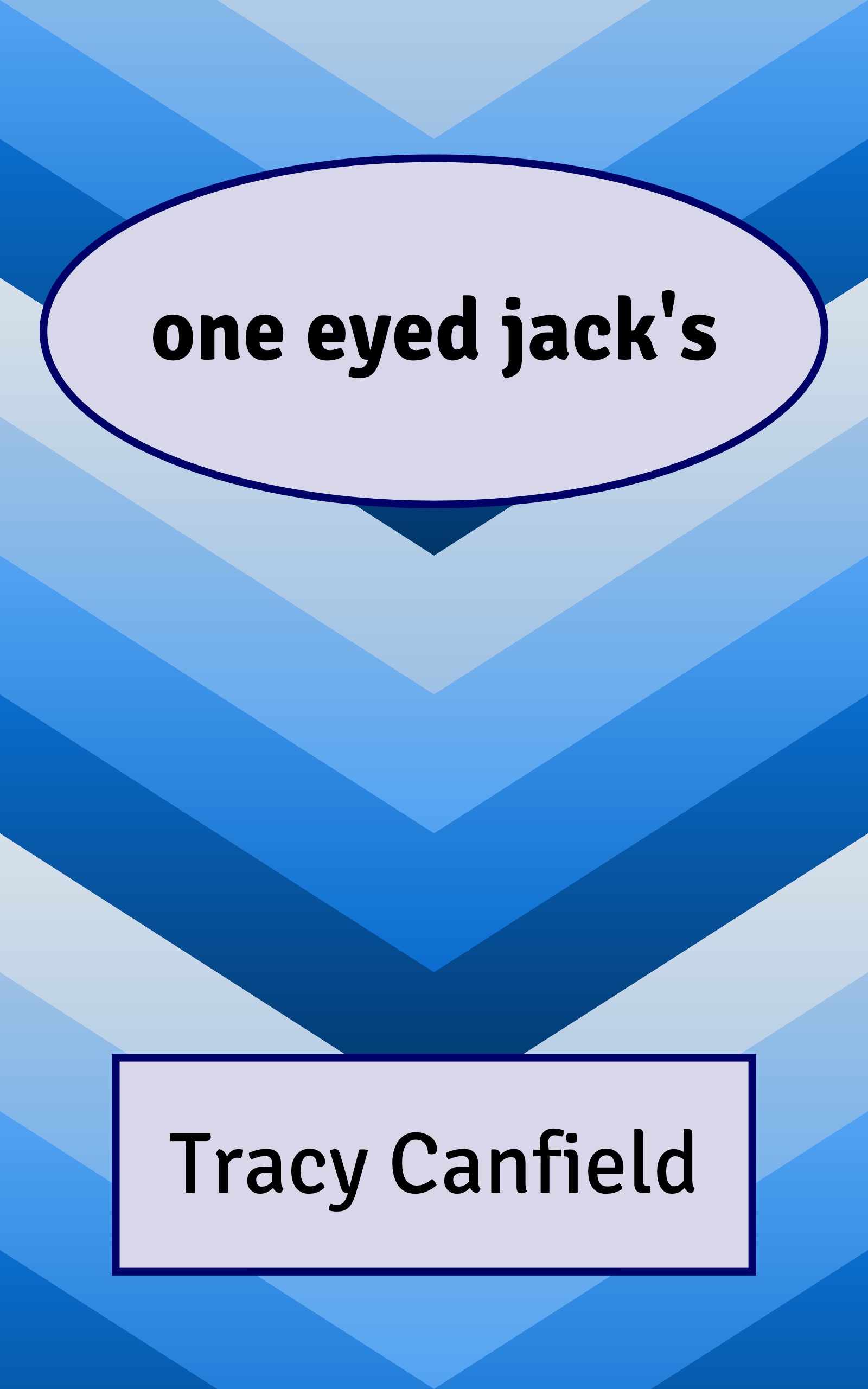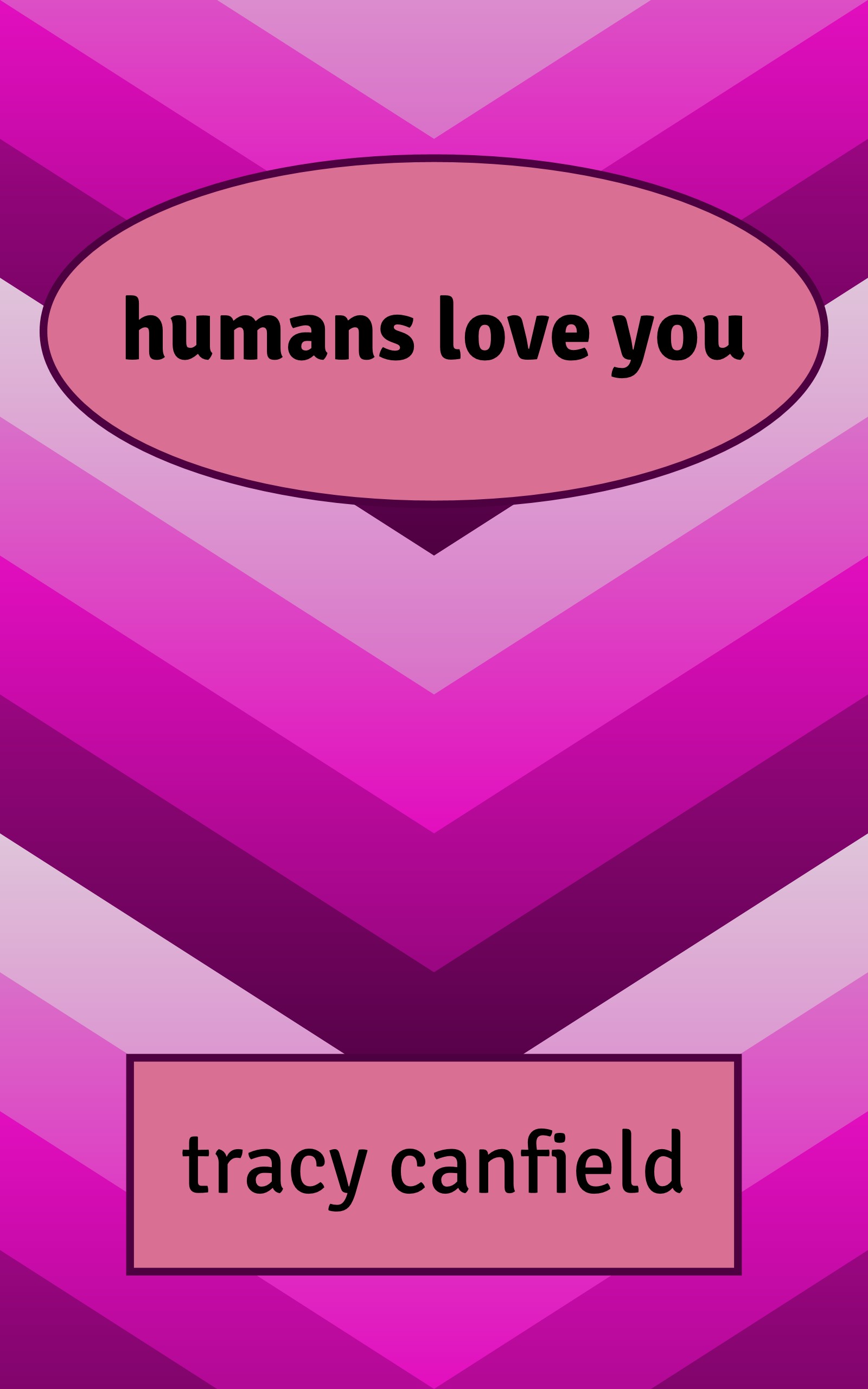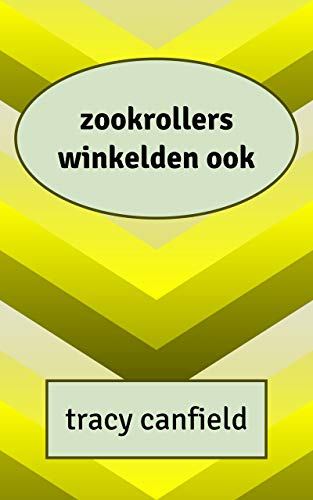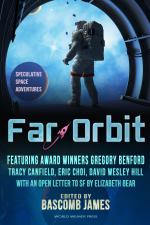About
 Tracy Canfield is the author of the space opera computer game I, Cyborg. Her award-winning fantasy and science fiction has appeared in numerous magazines
and anthologies, including Analog, Strange Horizons, and Fantasy Magazine. She holds a PhD in computational linguistics. CNN once called her a "Klingon scholar". That is her.
Tracy Canfield is the author of the space opera computer game I, Cyborg. Her award-winning fantasy and science fiction has appeared in numerous magazines
and anthologies, including Analog, Strange Horizons, and Fantasy Magazine. She holds a PhD in computational linguistics. CNN once called her a "Klingon scholar". That is her.
Longer fiction
I, Cyborg
Ypsilanti Rowe is a notorious interstellar smuggler. You're not Ypsilanti ... not exactly; just a cybernetic copy. And if you can't locate a replacement sensory bus before yours fails, you won't even be that.
But when your search takes you to the artificial moons, luxury starliners, low-gravity nature preserves, and self-aware cities orbiting the gas giant Galdra, you realize that Ypsilanti got here first - and now Ypsilanti's problems are yours.
I, Cyborg is a 300,000 word interactive novel published by Choice of Games LTD.
Three hundred sixty-four passengers in the Transsidereal Jamboree's observation lounge, and you're the only one looking out the window.
The holo-shirted tourist on the next barstool is trying to pour a foamy blue Celestial Punch down his pet greeblie's throat. The greeblie goggles uncomprehendingly, which is pretty much what greeblies do. A local algae farmer nods along with a pitch for a "one-time investment opportunity" from a saleswoman you'd clock as a con artist even if she hadn't offered you the same deal in the zero-g ballroom last night. And down at the far end of the bar, two toughs with bioluminescent hair aren't even pretending to be legitimate businesspeople.
But on the viewscreens above, Galdra glows with a dignity that not even Celestial Spacelines' tacky logo can fully eclipse. Scarlet bands marble the gas giant's surface—storm clouds that could swallow lesser planets without a ripple. The Jamboree's trajectory passes high above Galdra's rings, which the viewscreen's computerized overlay is busily tagging with the current positions of moons and orbital space stations.
Not a destination you would have picked, but if you don't find what you're looking for here, you won't get another—
Everything flickers and goes dark. Your sensory bus is on the fritz again.
| I string together profanity from four different star systems into one obscene yet acceptably grammatical sentence. |
| I keep my face turned towards the viewscreen. Act casual. Can't let anyone see there's a problem. |
| I run a quick internal diagnostic and prioritize other sensory inputs. |
| What, again? The universe never stops reminding me I'm not human. |
| That's life as a cyborg, but hey, on the bright side, I never get hangovers. |
Play the free demo — or buy the whole game on Steam, Google Play, iTunes, or Amazon
Short Fiction
Good Dog
A short multiple-choice game about a superhero dog who's getting too old to save the world. Play it for free online.
i know my own & my own know me
Five-star rating from Rocket Stack Rank! "A team trying to understand what happened to a human colony whose members have regressed to animal intelligence is distracted when someone uplifts their cat to human intelligence. The ending makes perfect sense ... The list of characters and motivations is complex."
"This slowly unfolding story takes readers deep into the personalities of its characters by keeping the narrative fixed in digital chat communications. This limits what can be said about the history and setting, however the story's length allows it to naturally unfold, and the characters themselves give readers stepping stones to follow until they have their feet on more solid ground in the world. There is necessarily a lot here that is left unsaid, left up to the reader to either figure out or speculate for themselves. Canfield challenges readers to reassess the boundary between what we think of as human and animal, as future science technologies will undoubtedly force us to confront this distinction sooner or later." — Tangent Online
"In 2164, someone on Shennong Space Station uplifts the cat, Maneki Neko, and it starts typing out messages. This causes consternation and a whole story of messages from the cat, the humans on the station, and a couple of other uplifted animals. Well done!" — SF Revu
Included in the Tangent Online 2017 Recommended Reading List, the BASFA 2018 Hugo Recommendations, and 1000 Year Plan's list of The Best Short SFF: Summer 2017.
Originally published in Analog.
Maneki Neko 13:05:02
hello evreybody my name is maneki neko & i am a cat! (named maneki neko)
Utas 13:08:12
Okay, which of you assholes uplifted the cat?
Gregory Silva 13:15:01
And could you at least have declawed him while you were at it? He squirmed away before my scan finished, but he definitely has a language module with our standard English preload and a basic cognition module. His head's no bigger, so there isn't room for much more in his implant. Heading to First Aid for some bandages.
Gregory Silva 13:15:58
For me, not for the cat.
Get the whole story on Kindle.
Salvage
"This story takes solid aim at space opera and hits on all counts, weaving a plot around technology and humanity, family and loss, greed and discovery ... The story also does a great job capturing a sense of fun while tempering that fun with deeper and darker emotional beats ... Everything had a good weight, great pacing, and brilliant ending. An excellent read!" — Quick Sip Reviews
Ypsilanti Rowe. Sound familiar? That's because Ypsilanti shows up in the game I, Cyborg, which also takes place among the thousand planets of the Intersolar.
Ypsilanti Rowe is a notorious interstellar smuggler. Buffalo Rowe isn't. Not exactly. Buffalo is a cyborg with a copy of Ypsilanti's mind, and for the past fifteen years he's been living his own quiet life. But now, just as one of his critical parts is failing, Ypsilanti's troubles are about to catch up with him — and the woman he's fallen for.
Originally published in Giganotosaurus.
The stereopsis module clicked open in Wren’s fingers. “For the next five minutes,” she said, “try not to play any ping-pong.”
She sliced deftly into my abdomen, and though my somatic subsystem signaled pain, I didn’t wince – wouldn’t want her to think I was nervous.
Usually Wren’s workbench loops were stuffed with starship components for customers brave enough to scavenge the Drift or rich enough to pay someone else to. Today, though, she was down to a disassembled Kviksølv cyborg body. Well, a knockoff Kviksølv. Wren unclipped a cable and my view of the bench sank to 2D as my eyes automatically switched to my backup visual processor.
“Okay, Buffalo, here goes.” She waved theatrically. Her fingers were grubby, but her burgundy nail polish was unscratched.
With a flare, the new Kviksølv stereopsis module brought the third dimension surging back. The workshop had developed a red tint, though, like a bootleg romcom dribbling over the ansible from seventy light-years away. I tried to recalibrate off my memories of Wren’s dark skin, but it didn’t help.
“Don’t tell me,” she said. “The camera’s adding ten pounds.”
Read the rest online in Giganotosaurus, or get the story on Kindle.
Lift Up Your Cores, O Ye Ships
When an intelligent starship founds its own religion, AI bureaucrat PHAIN-7 is determined to put a stop to all such nonsense. Maddeningly, though, its human counterpart Siyaad Yelexow doesn't seem to think there's a problem.
Originally published in Geminid Press's Night Lights.
Reprinted in Best Vegan Science Fiction and Fantasy: 2016.
"The relevant forms, timestamped and cryptographically signed," boomed Intendant PHAIN-7's synthetic baritone, "indisputably registered the name CLPS Red Sprocket Deer. But the Effacer-class warship in question actually left Sunthorn highdock as CLPS Wonderful Counselor, The Mighty God, The Everlasting Father, The Prince of Peace."
"Have you viewed the reports from the other ships at Sunthorn?" said Intendant Tahliil Siyaad Yelexow, plucking his coffee cup off the conference room processing block. PHAIN-7 was using that block for sensory input, but AIs felt no particular attachment to their hardware. "They say the light from the Bijou-Beta supernova arrived at the precise picosecond Wonderful initialized. Though once you figure in the relativity of simultaneity –"
"I am aware of all this," said PHAIN-7, with the programmed patience AIs require to talk to humans in real time. "Are you aware that these ships believe Wonderful is God, manifested in the form of a starship?"
"I don't see that it's my problem," said Siyaad Yelexow. "It's not against any law I know of to be God."
Read the rest of the story on Kindle.
Meddling Kids
"As for some stories of note: Tracy Canfield's Scooby Doo riff "Meddling Kids" is silly and popcorn-light, adding a tongue-in-cheek queer undertone to the mystery-solving high schoolers. The mad scientist and her assistant are ridiculous, as is the [SPOILERS DELETED!] It isn't credible in the real world and isn't intended to be; it's brief, amusing, and plays with tropes in a way that made me smile." Brit Mandelo at Tor.com
"An oddly familiar mystery-solving team with a Great Dane in tow foil a professor’s sinister plans." Kirkus Reviews
"Berman’s collection of 18 stories — mostly originals with a few reprints — is as offbeat and expectation-defying as the title suggests. The contents range from whimsical to serious, from romantic to tragic, and from historical to futuristic ... Among the most unusual selections, Tracy Canfield’s "Meddling Kids" is an oddball riff on Scooby-Doo" Publishers Weekly
In the Lethe Press anthology Daughters of Frankenstein: Lesbian Mad Scientists, edited by Steve Berman.
Outside the lab's gleaming windows, the wind from Bobcat Mountain whisked away the last of the Pennsylvania summer. Dead birch leaves swirled across Professor Isotope's view of the Sunset Drive-In screen far below. The Professor couldn't run a cable down the cliffside and wire her lab to the Sunset's sound system: Ken Hewitt, who owned the theater, wasn't taking her calls. So she watched the midnight show from her goop-spattered lab bench and tweaked her Tesla coil until its plasma filaments picked up the audio. A cat rubbed one head against her ankle.
"When the kittens come out to play, Ken, you'll be sorry." The Professor smirked down at a vast Malcolm Mc Dowell slinking across the screen. "Maybe tomorrow."
The cat rubbed its second head against her other ankle.
"Maybe tonight," said the Professor.
Get the whole thing on Amazon.
Junk on the Wall
In the Serling Award-winning anthology Another Dimension, edited by Angel McCoy.
People ask why I quit my job as a lawyer to travel the country buying antiques for McKinney's restaurant décor. Some of those people out and out tell me they figure it's because my husband left. They're not wrong.
Read the whole story in the Another Dimension anthology at Amazon.
Bears Punching Bears!
"... light, clever, and fun (if retrogressive — capitalists in space, etc.), and I recommend it as such." — Marooned Off Vesta
Originally published in Giganotosaurus.
The false-gravity observation deck offered a spectacular view of the incandescent whorls and fronds of the Zeepardjes Nebula, but Vro Vrolik, a Solarium School of Business alumnus at heart, was more inspired by the spinning sign of the Golden Nebula Casino.
The only other human on the premises, Vro’s former classmate Nurt Çubiry, slumped against a deck-mounted viewscope. “Six months of spinning my wheels here. Zero-gravity slot tournaments. Payout tables so complex they’d make a cryptographer weep. Pheromone-drenched ad campaigns that left my office smelling like a French whorehouse. We’re the first, and only, modern casino in Boldengurd space, but I just can’t scratch up a profit.” Why can’t a Solarium grad succeed with an opportunity like this? thought Vro. It broke his heart.
Nurt’s alumnus badge was splotched with unnoticed mustard. If Solarium’s honor was to be salvaged, Vro would have to be the one to do it. And, of course, his future consulting career prospects would be limited if he couldn’t get a perfectly good casino into the black. He dabbed the mustard away with his cuff.
“Hi, boss,” drawled a voice from Vro’s wristpad. “Don’t you get offended, but can I cut in on your human groomin’ ritual?”
“Vro’s the boss here now,” said Nurt. “I’m just a guest.”
The Boldengurd who’d spoken through the translator software stood out from the crowd of tourists gawking at the nebula, thanks to the gleaming pompadour wig perched on his braincase and the rhinestones belted around his limbless body. Vro quelled his instinct to anthropomorphize the Boldengurd’s posture. The species’ supple white bodies were always roughly horizontal, and the candy-red braincase at the flared end never rose more than a few centimeters above the floor. Elvis wasn’t kowtowing. It just looked that way.
The Boldengurd clacked. “Came to tell you the time has come for me to pack up and move on,” said the translator. “Got me a new gig in the Rangifer Belt.”
“What? Wait, what? You can’t expect me to run a casino without Elvis,” said Vro.
Read the whole story in GigaNotoSaurus or get it for Kindle
House Cats
"Kyle ... is a stubbly young stranger who happens to be a werepanther. As the story opens, he is getting high in a graveyard and vowing to himself that he is not going to transform. Delores Halderbaum is a widowed, respectable matron and head of the Peacock Guild. Her organization puts on an annual Home and Garden Show as a fundraiser for the Tulip Tree Foundation, a group that helps children with cancer. She’s also a werepanther. Anthony Schomacker, head of the Tulip Tree Foundation, is not a werepanther. He’s a greedy schmuck who thinks he can do a better fundraising job than Delores. This story is about what happens when the three collide." — Tangent Online
Originally published in Crowded Magazine.
Kyle promised himself that he wouldn't change while he was high. The larger body made the buzz wear off faster, and he didn't have all that much weed to begin with.
That was the whole reason he was rolling his joint here in the dark, sitting cross-legged against a granite tombstone in Crown Hill Cemetery, ash flaking onto his green hoodie. If he lit up back at what's-his-name's place he'd be expected to share, what with what's-his-name letting him sleep on the couch and all. Plus, once he got blazed – even on the schwag that was all he could find in Indianapolis – he might get in the mood to change, and he didn't think what's-his – Luke! Dude, that was it, Luke – he didn't think Luke could deal.
The trees masked the midnight glow from 38th Street. Fragrant smoke warmed Kyle's lungs. He'd worked halfway through the joint when the urge to change hit, uncurling in his legs (so weak in this shape, but so strong if he gave them that little push ...)
I am not going to change, he thought, but I might as well take my clothes off. Hey, it was pitch dark, he was well off the path, and the cemetery was empty. He ground the coal out on a gravestone and stripped in the bracing April breeze. Leaves rustled high above, and an occasional car snored past the fence, but the last humans he could smell had left hours ago ...
... the last humans, and the last werepanthers.
Read the whole thing on Kindle.
But It Won't Set You Free
"... a classic bit of science fiction ... Even casual readers will feel right at home in this environment, and it was nice to see humanity painted as the 'technologically advanced aliens' for once. The title and the 'cautionary tale' tagline suggest that this piece will be dark and gritty, but it is actually quite lighthearted. Harvinder and Kim are endearing characters, because you can't help but feel sorry for them. One little misunderstanding is all it takes to send their situation spiraling out of control, and with the stigma of Ukupanipo looming over them from the start, the string of little disasters that befalls them becomes quite entertaining; never has a character tempted fate more openly than Harvinder, for example, with that fatal line, 'he's the only one who’ll remember seeing us. And he’s probably no one important' ... A good, well-rounded story." — Tangent Online
Originally published in Analog.
"Hold that thought, Kim." Harvinder Pawera tightened the stainless-steel retractor a fraction of a notch, just enough to let him slip the ultrasound wand into the spot-herder. The alien flinched and whistled a mournful tune much like the ones Harvinder had heard from its companions. The restraining strap had twisted around its foreleg, crumpling the vestigial webs. That couldn't have felt good either. "I know you don't like it, li'l fella, but you'll soon forget. Kim, you were saying?"
Kimberly Rawlins's voice buzzed from the lab bench speaker. "The A13 tissue type," she said. Her coffee cup clicked audibly against her console. She was behind the observation window, outside the mobile lab's sterile zone. "THOTH has calculated the total connectivity, and A13 can't be our brain after all. It isn't complex enough."
"Another day, another theory," said Harvinder.
Back home on Earth, every half-witted summer comedy included a stereotypical Contact xenobiologist: a lumbering bureaucrat swaddled in a biohazard suit, toting twenty kilos of datacubes specifying the approved course of action for every imaginable situation, and shooing away anyone who might say an unauthorized "Hello" to an alien.
I can't say it's an unfair characterization, thought Harvinder as he shoved the wand another inch into the as-yet unidentified orifice. But we managed to find something those protocols don't cover. What if you can't tell which aliens are sentient and which aren't? The spot-herder stamped its knuckles and whistled, and Harvinder patted its baggy, spotted hide.
Read the whole thing on Kindle
The Chastisement of Your Peace
"Okay, so this one is pure jealousy ... when I read Tracy’s story about a world populated entirely by parallel universe versions of Jenny Sirico (just one random woman), I thought, “Damn, I wish I’d witten this one.” It’s not only an idea that I love, but it’s treated in exactly the manner that I love. It’s full of all these fun little flourishes that give the Jenny-world the illusion of being as rigorously logical as (we hope) the real world is. And I like the direction that the actual story went, too. Everything about the story really clicks. It feels like, given this setting, the story used the exact right character and told the exact right story." — Rahul Kanakia, author of Enter Title Here
Originally published in Strange Horizons.
Translated into Estonian as Karistus, et sul oleks rahu.
Honorable Mention, The Year's Best Science Fiction: Thirtieth Annual Collection, ed. Gardner Dozois.
"Parallel worlds," said the woman who looked just like you. She rummaged through your desk. "Yeah, I know, that's some Star Trek shit right there."
"Neither of us has a beard," you said. "Which one of us is from the Mirror Universe? Who's the evil one?"
She found the snickerdoodle in your lunch bag. How had she gotten past Kondo-Pelletier security? They wouldn't let you in without a badge, and you worked here. "Oh man," she said, tucking the cookie into her vest pocket, "last week I was in Chi-84, and the recruitment target looked me in the eye and said 'I know I'm the evil one.'"
You went with her. You thought about the vague secondhand politics of that girl you'd just had your fourth date with. You thought about the proportion of Chem Eng to paperwork in any job you'd ever get. You thought about the annual holiday postcard from your dad, now that he'd decided to use his time off for travel instead of family holidays. This world would be no different without you. You didn't even have a parakeet to feed.
Read the whole thing on Kindle or in Strange Horizons.
One-Eyed Jack's
"Country magic. Granny has too much to worry about. First of all, there’s I-79, that will come roaring straight through the valley if she takes her eye off it for a second. There’s her restaurant, the Coffee Pot, and her granddaughter Lizzie. Then there’s the Riddle Hill United Church of Christ, which is singing so powerfully even the dead have joined in. Granny suspects the problem is with the Sing, but it turns out to be another place ... Canfield plays this one in the right tone all the way through, with touches of a Tall Tale. Short, but a lot of fun." — Lois Tilton, Locus
Honorable mention in Gardner Dozois's The Year's Best Science Fiction: Twenty-Ninth Annual Collection.
Originally published in Strange Horizons.
SING, said the hand-painted sign in front of the Riddle Hill United Church of Christ. And they sang. They put solar-powered crosses in the graveyard that shone all night so the dead could sing too. They would have sung the whole valley down to its knees by now if it wasn't for One-Eyed Jack's.
Read the whole story on Kindle or at Strange Horizons
Humans Love You
Originally published in AE: The Canadian Science Fiction Review.
The Aerumnula name for the station worked out to Floats Above Blue Planet with White Moon, but Jordan Eversley thought of it as Three Loud Buzzes and a Fart. It held fifty-eight hundred Aerumnulae, of which three hundred were coiled on the concave auditorium floor. Fifty-eight hundred Aerumnulae and Jordan.
“Mount Rushmore is a spiritual place for us,” he played. “Our ancestors toiled for a thousand generations to carve the gods you’ll see there. For us it symbolizes the union of our species and our planet.” He lifted his hands from the translator’s antennas and wiggled his fingers. The Aerumnulae found human gestures titillating. Their own taboo against displaying their manipulatory organs was so strong that Jordan still didn’t know if they had pincers or tentacles or what under their aprons.
Read the whole thing on Kindle or online at AE
Zookrollers Winkelden Ook
"A well-done look at grief and loss, violated, as well as the issue of wondering whether you can know if you are a simulation." — Lois Tilton, Locus
Originally published in Strange Horizons.
Honorable Mention in Gardner Dozois's The Year's Best Science Fiction: Twenty-Eighth Annual Collection.
Jason Fischer-Varon hated to block email from his dead husband, but he was getting over a hundred of them a day, and they were breaking his heart.
Read the whole thing on Kindle or in Strange Horizons
The Seal of Sulaymaan
"Based on Arabic myth. The narrator is perhaps the last remaining ifrit in contemporary Morocco, recently escaped from confinement and now tracking down a diabolical enemy who has the shape of a two-headed goat. It is a nostalgic journey, full of reminders of a vanished glory as well as things that remain much the same over the centuries ...
"The author won me over from the beginning, when I saw that she uses “jinn” and “jinni” correctly, and I found her descriptions of this milieu quite convincing. It is a delightful journey through a colorful landscape populated by interesting characters — the Moroccans and Berbers vex the narrator by calling her a Saudi and bragging that they have outbargained her for a carpet." — Lois Tilton, Locus
One of StorySouth's Notable Stories of 2010.
One of Lois Tilton's favorite stories of 2010.
Originally published in Fantasy Magazine.
Back when there were other ifriit to talk to, I’d tell them Morocco was as far as you can get from Mecca without leaving civilization. In Agadir, with its casinos and five-star hotels and nightclubs filled with Moroccan tourists sporting European fashions too daring to wear at home, even these most fractious of beings could not have argued; but here, a mere twenty miles out of town, I could barely have spoken the words myself without laughing. A thousand and one trashbags flapped and snapped on the branches of the argan trees, blown by the June breeze from every dump in the country. A plastic Ayn Sultaan bottle arced from the window of a passing truck, trailing a mist of carbonated mineral water, and bounced in the dust.
Except for the bags, the bottle, and the asphalt road, the landscape was much as I had always known it: rolling hills and twisted gray-green trees, dust and blue sky. One tall tree had been cleared of bags, and a herd of goats perched among its branches, nibbling the pointed argan fruit. A goatherd in a dusty jalbiib leaned on his stick and watched them. I thought of King Sulaymaan (may they build a halaal McDonalds on his grave) leaning on his own stick and took a step out of my way to crush the Ayn Sultaan bottle under my heel.
Read the whole story in Fantasy Magazine or listen to the audio version at Far-Fetched Fables
Heist
"... the inventive quality of “Heist” is what makes this tale merry reading. Jigging through the computers’ artificial world of Realms of Daelemil and fantasizing alongside the main character about the nature of a society governed by 'sensible' source code is entertaining." — Tangent Online
"... the story of a sting operation that involves a regular guy named Bill Martin, playing a soon-to-be-discontinued on-line computer game named Realms of Daelemil. One of his game-playing partners is a female character named Opel. When she offers to buy him an expensive piece of gaming hardware, things take a curious turn. This was an imaginative tale of intrigue with many twists and turns that I enjoyed." — SF Revu
Originally published in Analog.
In an argot obsolete long before their time, NESSET would have been the owner, who designed the con. Opel was the roper, who brought the mark in. ("Outside man" was more common in the days of the Pigeon Drop and the Greek Return, but Opel wasn't a man.) Threely was the cooler, who stuck around after the blowoff to keep the mark from tipping off the authorities.
Bill Martin was the mark.
Read the whole story in the Soles e-book reprint
Starship Down
"Tracy Canfield gives us a interesting little story with 'Starship Down'. Okalani Yee is a doctor stationed on the planet Myosotis, in which the barely sentient natives look a bit like large bunnies. Their vocabulary limits their learning but Yee finds a way to get around that in this classic Analog tale." — SF Revu
Originally published in Analog.
Won the Analytical Laboratory Award for Best Short Story appearing in Analog.
Translated into Hebrew as תחנת ווטרשיפ.
The mobile medstation doorlight buzzed, and Okalani Yee opened the door without setting the viewscreen to the outside camera feed. It was a bunny, of course. The nearest non-bunny was at Aoi Station, currently six hundred kilometers away.
"A bunny tripped by the orchard wall and broke its ankle," said the visitor. Bunnytongue had no greetings.
"How far away?"
The bunny spoke a single word, which the translator bud in Yee's ear rendered as "Two to six kilometers."
"Wait a minute." Yee grabbed the medkit and pulled on a lightweight mask with a portable aerator that clipped on her belt. The Myosotis atmosphere was breathable enough — a bit high in CO₂, a trifle light in O₂ — but on long brisk walks she preferred to breathe Earthmix. The mask was comfortable. With the temperature and humidity regulation, she'd forget she was wearing it.
The bunny loped off over a blue hill. It wasn't even Genius Bunny, who was the only Myosotian Yee could tolerate any more.
Read the whole story in the Far Orbit anthology or listen to the audio version at StarShipSofa
